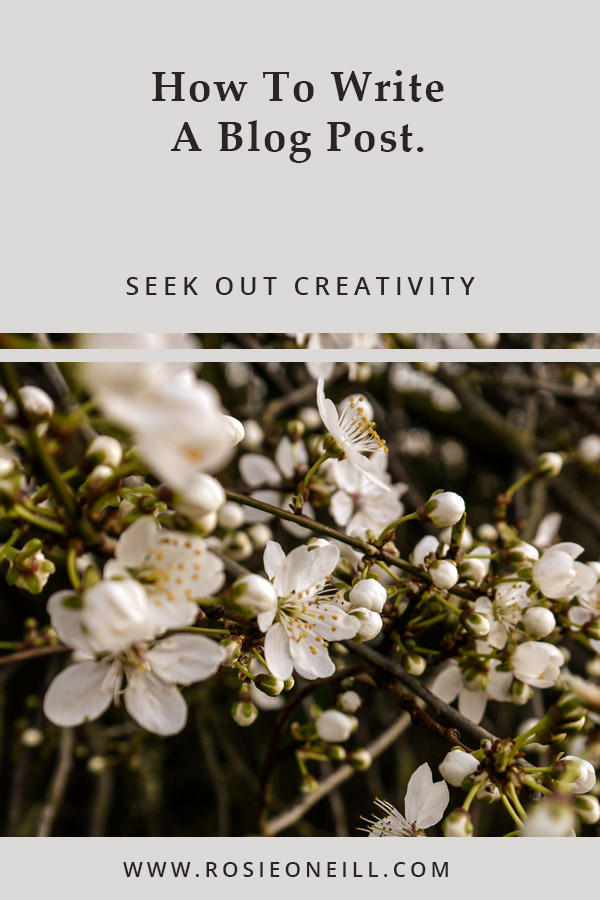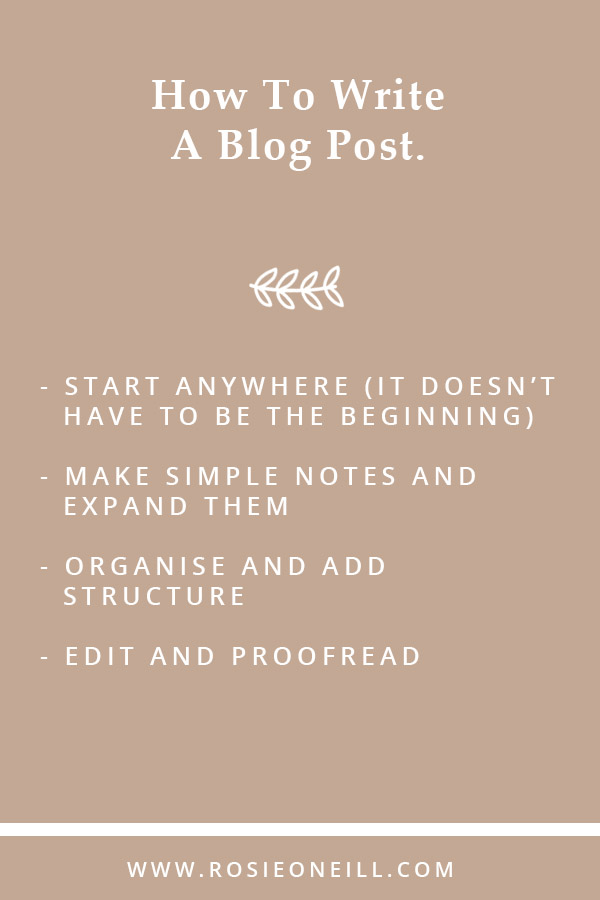HOW TO WRITE A BLOG POST.
Creating blog content is great for your site SEO because it makes your site look active and engaging, helping it show up in searches and get found.
Even if that isn't your aim, it can also be a really good, regular practise in consistent creativity - which is the best way to improve at something. It invites idea generation, writing for a purpose, building skills in word choice, sentence structure and editing - mostly without you even realise it.
Writing doesn't come naturally to everyone, and a simple blog post can paralyse even the most gifted writer.
There is no right or wrong way to write a blog post. They can be long or short, flow-y and word-y or clipped and to-the-point, educational or inspirational.
But whatever you're trying to write, know this:
You can't fix a blank page.
The only way to get to a finished blog post that you can publish is by getting started and just having a go.
Because there's no right or wrong way to do it, the way that works for you might look wildly different to my method, but I'm sharing my process here in case it helps you try something a little differently:
A collection of random thoughts.
I never write anything in the order it's supposed to be read.
Starting with the blog post title, or a vague theme for the piece, I'll open up a fresh note in Evernote and type as many random thoughts or points as I can think of on the subject. It doesn't matter if some of them are too similar or not what I'm after - for this reason I find it much, much easier to write anything long form on a computer. Typing gives me the tools I need to shuffle and edit, to expand and cut as needed - which makes things so much easier.
Expand.
Next I expand on some of those points. Some might merge together, some might get cut, but eventually, I'll end up with a series of expanded points - and it will look almost like a blog post!
Order and structure.
I rearrange my expanded points to make sure the post is telling the story I want it to. I take a moment to think about what point I'm trying to make and just sense checking what I've written to help it match up - adding joining sentences as needed.
It's at this stage I'll also split the post if needed, using headings, paragraphs, bullet points to help with structure and readability.
I'll then work on the opening and the closing (if I'm doing one), if I've not got any thoughts down already. I very rarely write an opening before the bulk of the post as I find it very blocking to start with that. I don't really think you need to have a sign off on a blog post, but it can be helpful if you need to add a call to action (maybe you'd like readers to sign up for your newsletter). Likewise I don't feel a question is always necessary, and I certainly wouldn't choose to tack one on for the sake of it.
Editing and proofreading.
This is the last thing to do before I publish my post. I don't like to self-edit as I go (something I've picked up from novel writing), because I find it really slows the whole process down.
I cut areas of repetition or irrelevance and check the flow and tone of the writing.
I don't worry too much about spelling and grammar because I'm naturally a fairly good speller, although I am an absolute typo monster. I like to see reasonably clear, problem-free writing in a post but I've never been put off by the odd mistake. Try a free grammar checker like Grammarly if you really need to double check it, or have a family member read through for you.
If you struggle with rhythm and flow in your writing, try reading it aloud back to yourself. If it sounds unnatural or you stumble over the sentences, try smoothing them out by writing in the way you would speak, by typing what you would say when discussing the subject.
Above of all this, try not to overthink it. A blog post is not a novel. Write it to the best of your ability, give it a careful check through, then publish it and let it go. Writing blog posts to a reasonably regular schedule is the best way to improve; you'll get better with every one.
PIN FOR LATER:




